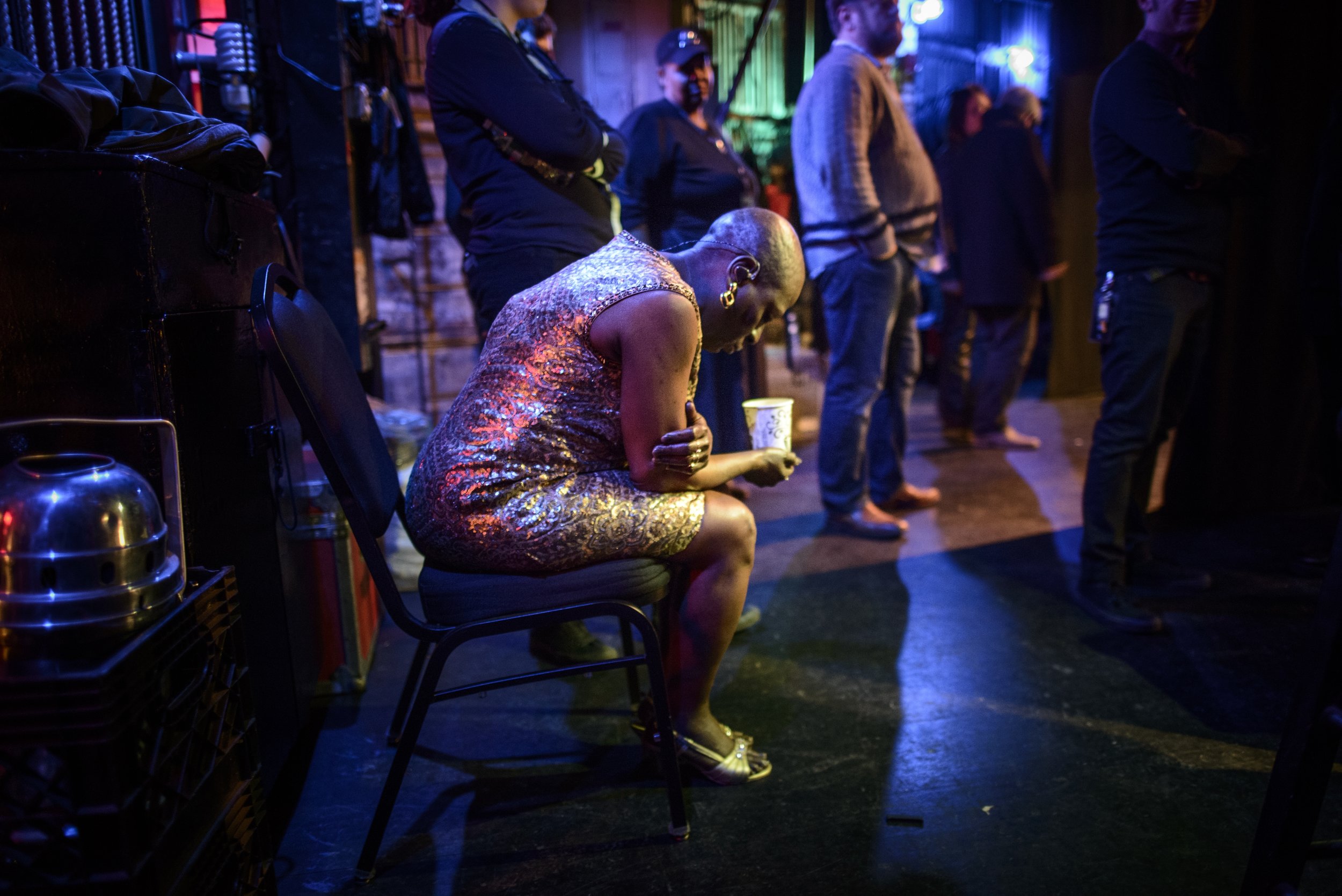 For twenty years, soul singer Sharon Jones has cultivated a world-wide audience with her sensational albums, performances and stunning voice. Sharon Jones & The Dap-Kings have been heard in everything from FitBit commercials, to Martin Scorsese’s “The Wolf Of Wall Street” soundtrack. Though her career took off later in life, it’s clear that Ms. Jones has always belonged onstage. At the height of her career in 2013, Ms. Jones was soaring, until a devastating cancer diagnosis forced her to pause. During one of the toughest years of her life, Academy Award winning filmmaker Barbara Kopple followed Ms. Jones and The Dap-Kings in the stunning and captivating “Miss Sharon Jones!”.
For twenty years, soul singer Sharon Jones has cultivated a world-wide audience with her sensational albums, performances and stunning voice. Sharon Jones & The Dap-Kings have been heard in everything from FitBit commercials, to Martin Scorsese’s “The Wolf Of Wall Street” soundtrack. Though her career took off later in life, it’s clear that Ms. Jones has always belonged onstage. At the height of her career in 2013, Ms. Jones was soaring, until a devastating cancer diagnosis forced her to pause. During one of the toughest years of her life, Academy Award winning filmmaker Barbara Kopple followed Ms. Jones and The Dap-Kings in the stunning and captivating “Miss Sharon Jones!”.
Recently, I got the opportunity to chat with Ms. Jones about the documentary, her remarkable career, and her ongoing battle with cancer. Dedicated to the Dap Kings and to her sound, it was clear to me right away, that Sharon Jones wasn’t going to miss a beat.
Aramide Tinubu: Hi Ms. Jones how are you doing?
Sharon Jones: I’m doing alright thanks.
AT: Wonderful, well I just screened “Miss Sharon Jones!” and I’m so excited to chat with you about the film, your career and how things are going for you.
SJ: OK that sounds good.
AT: What was your first memory of singing?
SJ: When I was a child in church, I did a Christmas play where I got to play an angel and I sang “Silent Night”, so that was my first memory of singing.
AT: Wonderful. Well I know that James Brown has been such a huge inspiration for you, and you got the opportunity to meet him back in 2006 before he passed away. I know your mother actually knew him because they were both from Augusta, Georgia. How do you feel about being called the “The female James Brown”?
SJ: Well, that is such an honor to even get that thrown at me. I didn’t even realize it. He represented so much, coming from Augusta especially. In Augusta his name means so much. You can’t bring up Augusta without bringing up James Brown. They’ve also taken to me like that. In the museum, they have a little exhibit of me. I’ve also met with his daughter Deanna Brown and the James Brown Academy of Music pupils. It’s a school where the children are taught how to read music and play instruments. For me to be called the female James Brown, and to see how these kids look up to me, it’s just been so good.
AT: That’s incredible. In “Miss Sharon Jones!” you said that everything in your life has just taken a little longer. I know that your singing career didn’t really launch until you were in your early forties, but what has this journey been like for you? Did you ever think you were going to be Grammy nominated or begin a record label? Did you ever think you would be where you are today?
SJ: Well, maybe at one point back in the day I didn’t think I would, but once we started going at at this and I went to Gabe [Roth] and said, “Gabe you guys have to get serious about this. This is the last job I’m going to do; this record label.” I told him I wanted this to be a real label and focus on that. We got the building and I started painting and helping with that, so we knew then. The first three years we struggled. People think that we got together when our first album was out in 2000, but, [The Dap-Kings and I] got together around ’95 or ’96. It’s been twenty years now since I’ve known Gabe and some of The Dap-Kings
AT: Wow, it has truly been a journey then.
SJ: So over the last twenty years we’ve built ourselves to where we are now. It didn’t happen overnight. We put a lot of work and energy into it. To get that far, and then to be stopped in your tracks with the cancer; it was a blow. It still is a struggle right now, it’s a very big struggle right now for me.
AT: I’m sure, but you’ve been so courageous.
SJ: I’ve got to keep going. I’m not ready to give up yet.
Continue reading at Shadow and Act.



